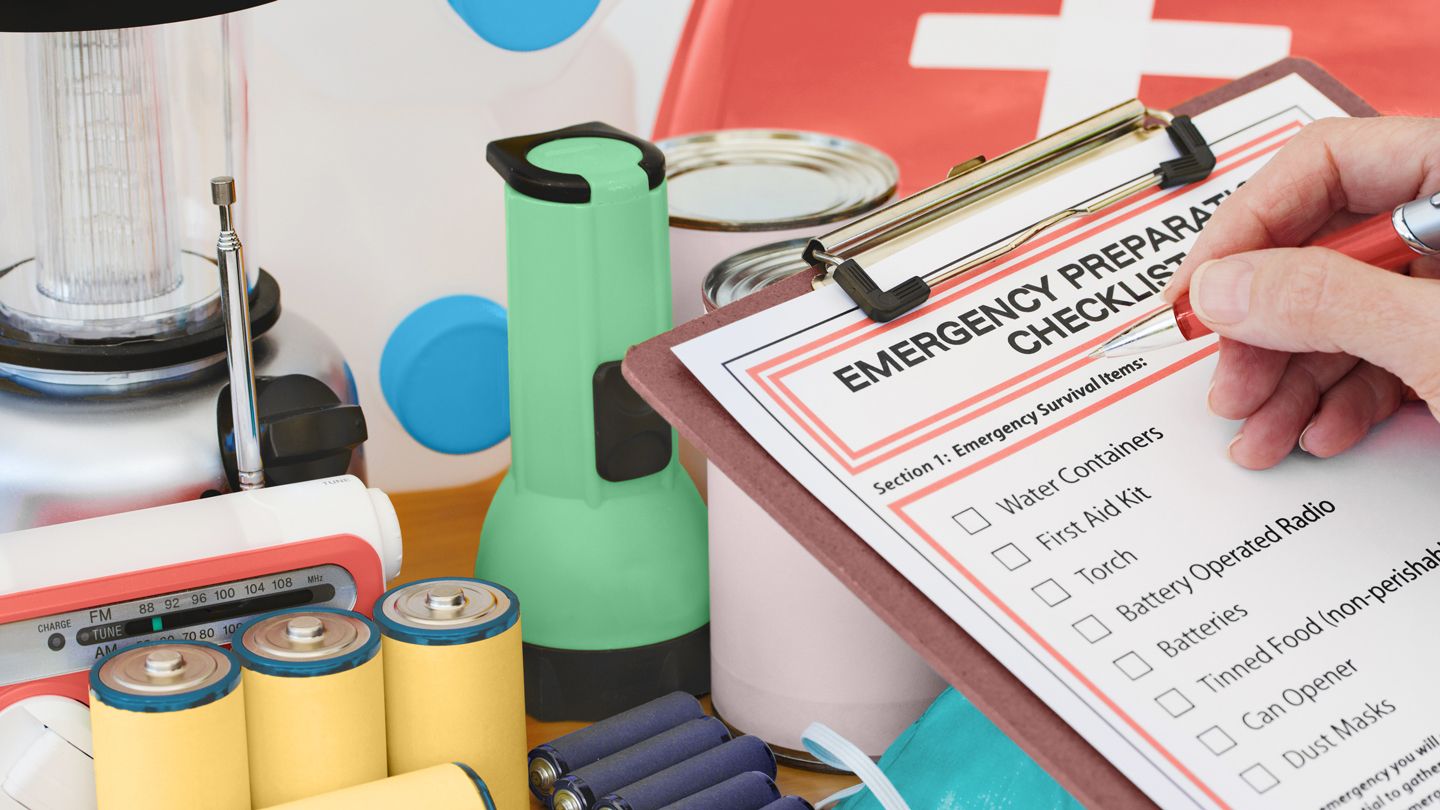Think about what hazards may affect your community and take stock of your situation.
Make a Plan for Staying and a Plan for Going
Depending on the emergency, you may need to stay where you are or go somewhere else to stay safe.
“In the event you need to leave, think about where you will go, how you will get there, where you will stay and what you’ll take with you. Plan well in advance if you’ll need help leaving or will use public transportation — and don’t forget to include pets,” says Maul.
Figure Out How to Stay Connected Without Your Cell Phone
Create a plan to reconnect with loved ones if you are separated or if the phone or internet is down.
“There may be situations where you can’t use your cell phone because of downed internet or a dead battery. You want to be able to monitor the situation, so it’s important to have a battery-powered or hand-crank radio where you can stay tuned to the local media for any notifications or information that may be coming out,” says Michael Antoine, the associate vice president of campus safety, emergency preparedness, and response for Louisiana State University in New Orleans.
Having a backup battery or a power bank to charge your phone is a good idea, too.
Sign Up for Free Emergency Alerts and Download Emergency Apps
Sign up for free emergency alerts from your local government, and make sure you know what different types of alerts mean.
“A ‘watch’ means be prepared. A ‘’warning’ means take action,” says Maul.
There are also apps, like the Red Cross emergency app, where you can access checklists and step-by-step guides to walk you through best practices during a hurricane or other disaster.
Available in both English and Spanish, the app allows you to customize 40 different weather alerts with fast notifications. It also offers an interactive map that can help you find open Red Cross shelters. It’s available in the App Store, Google Play or by texting GETEMERGENCY to 90999.
Create a Strategy to Address Certain Medical Conditions or Disabilities
“People with and without disabilities should routinely conduct a personal assessment of their needs. We find that support networks become a critical infrastructure for people with disabilities, older adults, or people who do not live near their family,” says Maul.
If you rely on power for medical devices, it’s important that you register with either your utility company or your local Emergency Management Office. “Many states have what they call ‘Special Needs Registries,’ and they usually try to find those folks a shelter, or they make them a high priority for restoring utility services to those areas,” Antoine says.
Also be sure to create lists of emergency contacts, medications, and healthcare provider info that you can keep close at hand.
The Red Cross has a dedicated information page for people with disabilities to help with preparing for different emergencies, including hurricanes.
Read the full article here




